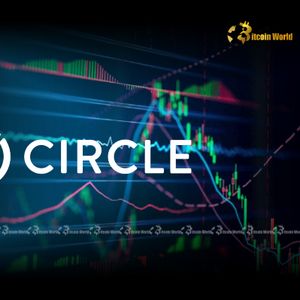Summary BMAX is a fund that invests exclusively in convertible debt issued by Bitcoin Development Company Strategy and various Bitcoin miners. This debt is theoretically less risky than owning the companies outright, and could result in a strategy that is lower in volatility than MSTR, RIOT, MARA, etc. BMAX is supposed to participate in the upside that comes with those firms, but has underperformed Bitcoin itself since inception. It may take a few years for the potential outperformance to play out, as we are currently very early in the convertible debt cycle; the first maturity is in 2028. Currently, I struggle to find a place in a portfolio to recommend BMAX over a Bitcoin ETF like IBIT, but some investors may still be interested due to its unique offering. Introduction I've been interested in cryptocurrencies for the better part of ten years, but most of my attention has been on the coins themselves, like Bitcoin ( BTC-USD ), and not the corporations that operate in the space. Of course, over that time, " Bitcoin Development Company " Strategy ( MSTR ), formerly MicroStrategy, had caught my attention. The core premise of the company's Bitcoin operations is that it has historically been profitable to buy Bitcoin on credit. The firm pioneered a strategy where they issue convertible debt to buy Bitcoin for their corporate treasury. Enter the REX Bitcoin Corporate Treasury Convertible Bond ETF ( BMAX ) , from the same advisors who run the famous FEPI ETF , which promises to invest in the convertible bonds Strategy and other firms issue to buy Bitcoin with. It launched in March 2025, carries a fee of 0.85% p.a., and invests directly in the convertible bonds of firms like MSTR as well as Riot Platforms ( RIOT ) and MARA Holdings ( MARA ). In REX Shares' words, from their website : The game has changed. Corporate treasuries are evolving, and public companies are now using convertible bonds to stack Bitcoin on their balance sheets. Once reserved for Wall Street’s elite, these are now available to all via ETFs. BMAX strategically focuses on entities like Strategy, a prominent issuer of Bitcoin treasury convertible bonds. This focus allows the fund to leverage the burgeoning market dynamics where digital asset strategies intersect with traditional finance. The strategy seems fairly straightforward when illustrated by REX Shares: REX Shares Convertible Debt The basic premise behind convertible debt is that it doesn't have to be paid in cash, but can be converted into equity to pay creditors instead. This keeps costs low for the business issuing the debt, which allows them to buy more Bitcoin. These come with their own risks, and act as a weird in-between asset for equity and debt. These bonds move alongside the equities that issue them at times, mostly because the payoff for these instruments is more equity and not cash. The way it is being sold by REX Shares is that BMAX is less risky than MSTR because of this relationship between the equity and its convertible bonds. We can see this relationship very clearly when looking at the price return correlation of BMAX against MSTR over the last few months, where the rolling metric is very high, but not perfect. We see the break, where they started to decouple, occur during the most volatile period in this chart, early April. Data by YCharts Let's take a look at the performance outright to see if it's worth holding over MSTR or Bitcoin outright. After all, the only case to be made for BMAX so far is that it is a toned down version of MSTR, but that could be achieved with a lower allocation to MSTR. Performance & Alternatives Performance is very limited, as BMAX is so new, having launched in March this year. However, we did get to see a large drop and recovery through this time, as the fund was launched just before the market's steep fall on April 4th. BMAX fashions itself as less volatile and risky than holding MSTR stock, which itself is like a leveraged position on Bitcoin. Financing Bitcoin leverage for MSTR et al. doesn't right away sound like a risk-off strategy to me, especially compared to owning Bitcoin or a Bitcoin covered call fund like YBTC . According to REX Shares: Convertible bonds combine the security of fixed income with the potential for stock appreciation to stocks active in Bitcoin, seeking a less volatile, more balanced approach to risk and growth. So, let's look at how the fund has held up against its competitors over the course of its short lifespan. Thankfully, we get a wider picture in this performance check than most funds younger than a quarter, thanks to recent market volatility. Data by YCharts While its end performance is very close to that of Bitcoin, we do see a much further drawdown than the largest Bitcoin ETF, IBIT . Fun fact: IBIT owns nearly 3% of BTC's total supply. True to management's claims, MSTR fared worse in the drawdown by the time we found the bottom. In a run-up, like we're seeing in the chart above, we should expect MSTR to have the highest return of all of these funds as it is the most aggressive, followed by Bitcoin outright, then convertible debt used to fund Bitcoin, and finally a Bitcoin covered call fund that sells its upside for income. Consequently, when looking at just the drawdowns, we see the reserve order, with the most aggressive asset, MSTR, being off its highs for longer and more steeply than Data by YCharts BMAX Holdings So let's take a look at what's actually in the fund, other than the general "convertible bonds" label. BMAX currently has 11 holdings, ten of them being bonds, and a cash position. While the majority of the holdings are from MSTR, we do see a near-11% allocation to MARA bonds, and a 3.5% allocation to a RIOT bond. REX Shares Note that the fund doesn't exclude ownership of the equity they may gain from bonds being converted, but limits their holdings to 20% of NAV. That being said, the current allocation is 0% to equity outright. This is most likely because none of the holdings have been converted yet, and so BMAX hasn't had the chance to I imagine this provision is in the fund so that the managers can choose when to sell the equity, and are not forced by the fund's rules to sell as soon as they are in possession of the shares, which could be disadvantageous based on the given market conditions when the conversions occur. Also note that most of these bonds do not pay very high yields, or any yield at all. This is due to the convertible nature, where investors understand the upside is in the equity being acquired at a discount and not in regular payments of cash. This system is very advantageous for MSTR et al. because they are able to raise capital now to buy Bitcoin at today's prices instead of tomorrow's prices. We can see this in the following chart, where REX Shares breaks down BMAX's holdings and highlights the price these firms purchased Bitcoin at using that round's funding. They range from the highlighted prices, under $70k, to as high as $96k. REX Shares BMAX Dividends & Yield The fund has never paid a dividend, but it likely will at some point. This is due to the fact that there is some yield to be had in these bonds, with the highest coupons coming in at 2.25% and the lowest at 0%. Expect the yield on the fund to be very low, likely sub 1% when all is said and done. Most of what the yield will do is help offset the 0.85% p.a. management fee. Regarding this, REX Shares writes : ...BMAX seeks to pay quarterly dividends from interest income and bond gains. However, they are expected to be minimal as most of the convertible bonds issued by the bond issuers currently pay zero or near zero interest rates. Suitability Who is this fund for? The only answer I can come up with is: people who want to invest in MSTR, but are afraid of volatility. That may sound like an oxymoron to some, but there must be a market out there for these folks, given BMAX exists, and the bonds do sell on the market. I'm not going to give allocation guidance for BMAX in particular, because I don't see a world in which it's more suitable for investors than owning a Bitcoin ETF, like IBIT. This fund is definitely not suitable for moderate and conservative investors, but neither are MSTR and Bitcoin. The aggressive investors already interested in the asset are likely better off owning MSTR outright, and taking advantage of the higher risk, higher reward environment that being on the issuance side of the convertible debt offers. Investors that believe MSTR is too risky are better off owning Bitcoin through an ETF like IBIT than BMAX, as they won't get the downside that comes with MSTR bonds; that downside appears to be more than IBIT's own, based on BMAX's short history. The risk and reward may not be right for most folks. As a counter-weight, here is REX Shares' answer to the "who should consider this fund" question: BMAX may be a good fit for investors who want to tap into Bitcoin’s long-term potential—but with a more balanced, risk-aware approach. It’s designed for people who: Want exposure to companies investing in Bitcoin, without holding crypto directly Prefer less day-to-day volatility than owning Bitcoin or mining stocks Like the structure of a regulated ETF that trades in a regular brokerage account Are looking for a way to diversify their portfolio with digital asset themes, but still want built-in protection If you’re curious about Bitcoin but want a smarter, more strategic way to participate, BMAX could be a good starting point They may seem to contradict me, as "less day-to-day volatility than owning Bitcoin" hasn't proven true so far, but it may just be too early to tell for sure. I want to give them the benefit of the doubt on that one. Data by YCharts It should also be noted that "Like the structure of a regulated ETF that trades in a regular brokerage account" does also apply to IBIT. While I use it for a direct comparison to BMAX, since it is an ETF that owns Bitcoin, the fund managers are referencing BMAX as an alternative to self-custody or exchange-traded Bitcoin, like on Coinbase ( COIN ), Robinhood ( HOOD ), or eToro ( ETOR ), where investors can buy paper Bitcoin held by the exchange to trade spot prices, as opposed to an ETF. Conclusion Ultimately, I struggle to find an answer to "why would I invest in the REX Bitcoin Corporate Treasury Convertible Bond ETF ((BMAX))?" It doesn't seem to offer the same kind of protection from a tanking Bitcoin market that it claims, and over its short lifetime, has shown worse resilience than Bitcoin ETFs. However, the fund is definitely a risk-off version of Strategy, and does provide investors access to assets not usually available to retail investors, which does earn BMAX some points. While I struggle to recommend it, the fund is serving its purpose as a way for retail investors to get access to the convertible debt strategy MSTR pioneered in the corporate Bitcoin space. This fund needs a lot more time to be properly reviewed, likely years, because how it reacts to when its bonds convert or mature will be telling of long-term performance. The fund is too new for these events to happen yet, and so it's unclear how the fund will react currently. Its first bond doesn't mature until 2028, and has a put date in 2027. We'll have to wait for that to play out before we can really evaluate the fund's performance against alternatives. Thanks for reading.


















